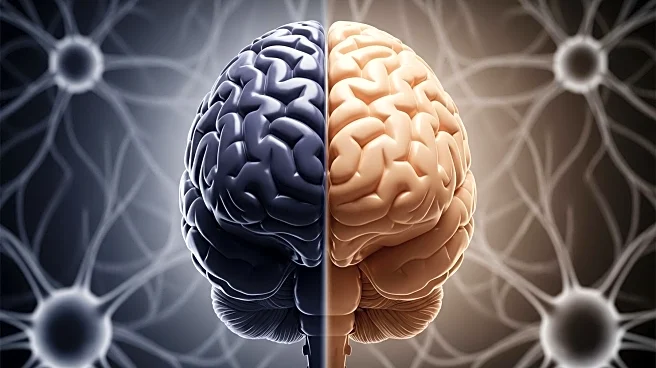What's Happening?
The BBC show 'The Traitors' has captivated audiences with its blend of deception and intrigue, particularly in its celebrity edition. The show involves participants trying to identify who among them is lying, while facing the uncertainty of being 'killed' off. This edition features celebrities like Alan Carr and Paloma Faith, adding layers of complexity due to their public personas. Richard Wiseman, a professor of psychology, suggests that deception is ingrained in human behavior, starting from a young age. The show mirrors everyday life where individuals constantly assess the honesty of those around them. Psychologist Susan Young notes that viewers project their beliefs onto celebrities, making it difficult to discern where their performance ends and reality begins.
Why It's Important?
The show's popularity highlights societal fascination with deception and the moral dilemmas it presents. It reflects broader themes of trust and betrayal in human relationships, resonating with viewers who see parallels in their own lives. The celebrity edition intensifies these themes, as public figures navigate the complexities of impression management. This dynamic offers insights into how societal norms and personal interactions are influenced by perceived honesty and deceit. The show serves as a microcosm of social behavior, illustrating how quickly loyalty can dissolve under pressure, a concept applicable to various societal systems including workplaces and politics.
What's Next?
As the show progresses, viewers can expect further exploration of the psychological aspects of deception and trust. The interactions among celebrities may continue to reveal insights into human behavior, particularly in high-pressure environments. The show's format may inspire similar productions, focusing on the psychological and social dynamics of deception. Additionally, discussions around the ethical implications of such entertainment may arise, questioning the impact on societal perceptions of honesty and trust.
Beyond the Headlines
The show raises ethical questions about the portrayal of deception as entertainment. It challenges viewers to consider the implications of normalizing deceit in media and its potential influence on societal values. The celebrity edition also prompts reflection on the role of public personas in shaping perceptions of truth and authenticity. These considerations may lead to broader discussions on the responsibility of media in representing complex human behaviors.









